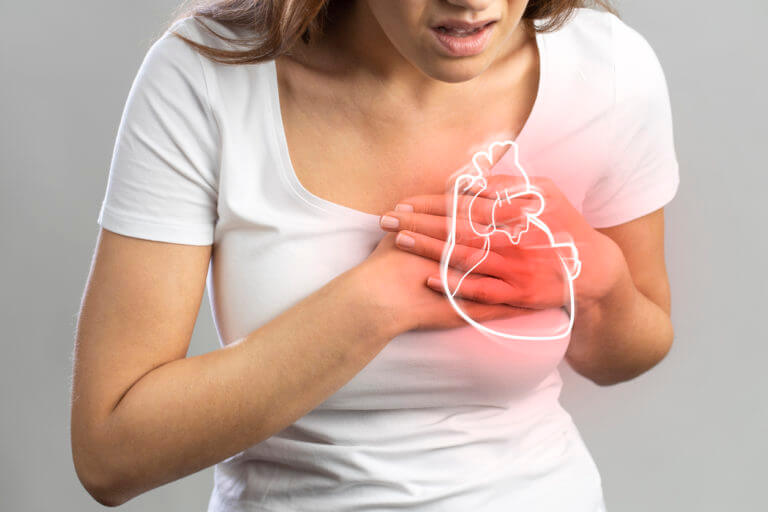Understanding Heart Disease: Causes, Symptoms, and Prevention
Heart disease, also known as cardiovascular disease (CVD), remains the leading cause of death worldwide. It affects both men and women, often without warning signs. But the good news is that many heart problems can be prevented or managed with proper knowledge and healthy habits.
In this article, you’ll learn the basics of heart disease—what causes it, how to spot the symptoms early, and most importantly, how to protect your heart before it’s too late.
What is Heart Disease?
Heart disease is a broad term used for a range of conditions that affect the heart and blood vessels. The most common type is coronary artery disease (CAD), which reduces blood flow to the heart due to plaque buildup in the arteries.
Other types include:
- Heart failure (weakened heart muscles)
- Arrhythmias (irregular heartbeats)
- Heart valve disease
- Congenital heart defects (present at birth)
- Cardiomyopathy (disease of the heart muscle)
Causes of Heart Disease
Heart disease is usually the result of long-term damage to the heart and blood vessels caused by lifestyle, genetics, or existing medical conditions.
Here are the major risk factors:
1. High Blood Pressure (Hypertension)
Constant high pressure damages artery walls, making it easier for plaque to build up.
2. High Cholesterol
Too much LDL (bad cholesterol) causes fatty deposits in arteries, leading to blockages.
3. Smoking
Tobacco chemicals damage the lining of your arteries and reduce oxygen in your blood.
4. Obesity
Being overweight increases the strain on your heart and raises your risk of other conditions like diabetes and high blood pressure.
5. Lack of Exercise
A sedentary lifestyle weakens the heart and blood circulation over time.
6. Uncontrolled Diabetes
High blood sugar damages blood vessels and increases the risk of heart disease.
7. Stress and Poor Sleep
Chronic stress and sleep deprivation raise blood pressure and inflammation levels.
Symptoms of Heart Disease
Heart disease doesn’t always show symptoms until it’s advanced—but early signs should never be ignored.
Common Symptoms Include:
- Chest pain or tightness (angina)
- Shortness of breath
- Fatigue, especially during physical activity
- Palpitations (irregular or fast heartbeat)
- Dizziness or fainting
- Swelling in the legs, ankles, or feet
- Pain in the neck, jaw, shoulder, or arm (more common in women)
Important:
Symptoms can vary in men and women. Some women may experience more subtle symptoms, such as nausea, back pain, or extreme tiredness without chest pain.
Table: Common Heart Conditions and Their Signs
| Condition | Key Symptoms |
|---|---|
| Coronary Artery Disease | Chest pain, shortness of breath, fatigue |
| Heart Attack | Chest pressure, arm pain, sweating, nausea |
| Heart Failure | Swelling, breathlessness, fatigue |
| Arrhythmia | Irregular heartbeat, dizziness, chest fluttering |
| Valve Disease | Murmurs, fatigue, swollen ankles |
How to Prevent Heart Disease
Heart disease is largely preventable with the right lifestyle choices and regular checkups.
Here’s how you can take control:
1. Eat a Heart-Healthy Diet
Focus on:
- Fruits and vegetables
- Whole grains
- Lean protein like fish or beans
- Low-fat dairy
- Healthy fats like nuts, seeds, and olive oil
Avoid:
- Processed and fried foods
- Excess salt and sugar
- Red meats and full-fat dairy
2. Exercise Regularly
Aim for at least 150 minutes of moderate activity per week, such as:
- Brisk walking
- Cycling
- Swimming
- Dancing
3. Quit Smoking and Limit Alcohol
Both smoking and excessive alcohol use damage your cardiovascular system over time.
4. Manage Stress
Try relaxation techniques such as:
- Deep breathing
- Meditation
- Yoga
- Journaling or walking outdoors
5. Maintain a Healthy Weight
Obesity puts stress on the heart. Losing even 5–10% of your weight can improve your heart health.
6. Get Regular Checkups
Schedule annual screenings for:
- Blood pressure
- Cholesterol
- Blood sugar
- ECG (if recommended by your doctor)
Conclusion: A Healthy Heart Starts With You
Heart disease might be common, but it’s not inevitable. Understanding its causes, recognizing early warning signs, and following simple lifestyle changes can greatly reduce your risk.
Your heart works hard every second of your life—take care of it with smart, consistent choices. Because when your heart is healthy, everything else in your life functions better too.

